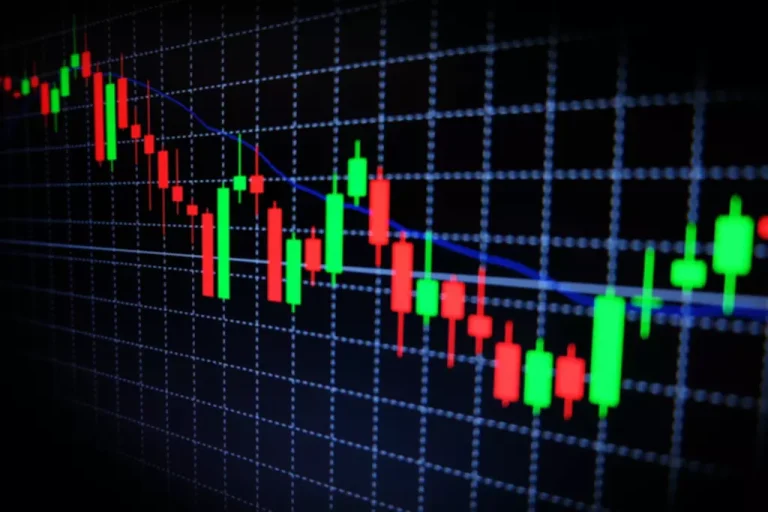Although prop trading is totally authorized, the absence of specific prop firms’ regulations has resulted in a gray zone of excessive dangers and much more opportunities. The Basel III Framework, developed by the Basel Committee on Banking Supervision, supplies world pointers for managing risk and maintaining the soundness of the banking sector. Whereas it isn’t particularly geared toward proprietary trading, Basel III has vital implications for firms engaged in such activities. Basel III imposes stricter capital and liquidity necessities on banks, which immediately impacts the amount of capital that might be allotted to proprietary trading actions. The Volcker Rule, enacted as part of the Dodd-Frank Act in 2010, specifically targets proprietary buying and selling and restricts the ability of banks to commerce for their very own account.
Profit Splits & Performance-based Revenue

Effective worry administration is equally important; unchecked concern of losing or lacking out can paralyze your decision-making or push you into reckless trades. Cognitive distortion can additional skew your perception, inflicting unrealistic expectations and flawed risk assessments. Additionally, determination fatigue units in after continuous trading hours, impairing your capacity to stay disciplined and constant.
Moreover, guaranteeing compliance with regulatory requirements is paramount for prop firms to maintain operational continuity and consumer trust. Additionally, the proliferation of prop buying and selling companies in an unregulated surroundings poses dangers, probably creating an abusive environment for shoppers and traders. Regulation is critical to mitigate these dangers, guarantee market integrity, and uphold moral requirements inside the business.
- I started my trading journey by shopping for UK equities that I had examine in the business sections of newspapers.
- The big thing to notice right here is that the Volcker Rule doesn’t actually have an effect on prop merchants as lengthy as they aren’t affiliated with a financial institution.
- Regulatory our bodies such because the Securities and Change Fee (SEC) in the U.S. or the Monetary Conduct Authority (FCA) in the U.K.
- The SEC’s role contains guaranteeing that proprietary buying and selling corporations adjust to laws that promote market transparency and shield buyers from manipulation and fraud.
- This can embrace detailed information about their trades, revenue or loss, threat profile, and more.
Supplementary income streams, such as passive investments or facet ventures, can ease strain and cut back emotional buying and selling. With disciplined planning and careful administration, prop buying and selling can genuinely become a viable path in path of monetary independence. If you’re considering prop trading, you may wonder whether corporations permit buying and selling bots and automated methods. The acceptance of Buying And Selling Bots varies notably across prop companies, depending largely on particular person Prop Agency Policies. You can sometimes declare expense deductions associated to your trading activities, corresponding to platform charges or educational resources, decreasing your taxable income. Nevertheless, guidelines range between jurisdictions, so confirming these deductions with a tax skilled is advisable.

Guaranteeing compliance with these laws can prevent hefty fines and penalties, while additionally improving the agency’s credibility in the marketplace. Contact us by way of e-mail at if you have any questions concerning prop buying and selling; our Regulatory Compliance staff stands able to help you. Before diving in, rigorously consider the key advantages in opposition to your private aims and life-style preferences. Your trading psychology plays an necessary position; emotional self-discipline and clear decision-making are essential. Moreover, persistently refine evolving methods that align with elevated market volatility and shifts toward decentralized trading platforms.
Additionally, build emotional resilience strategies by analyzing past trades objectively to acknowledge and reinforce optimistic behavior patterns. Drawdown limits present you, as a trader, with the liberty to execute trades confidently, knowing exactly the maximum allowable loss. To reach prop trading, your approach to danger management issues more than your buying and selling strategy. Scalping is amongst the most effective trading methods favored by prop firms because of its quick executions and quick holding intervals. To maximize your potential, you have to grasp scalping techniques that exploit small price actions all through the trading day.
The legality of prop trading corporations is constructed on a number of fundamental rules that apply across jurisdictions. Understanding how prop corporations work helps traders recognize legitimate prop companies no matter location. If you are disciplined, analytical, and enthusiastic to commerce professionally, prop trading provides a beautiful choice. With roughly 90% of prop traders leveraging superior technology like automation and AI, success more and more is dependent upon embracing innovation. While it is possible to earn a snug living as a funded trader, constant profitability requires dedication and ability.
In the meantime, the onus is on merchants to conduct their research and keep away from the darkish facet of on-line prop firms—the unregulated ones. One of the unintended consequences of proprietary buying and selling regulations, significantly the Volcker Rule, has been a reduction in market liquidity. Proprietary buying and selling firms, especially those engaged in high-frequency buying and selling (HFT), contribute to market liquidity by constantly shopping for and promoting securities.
The rule goals to forestall extreme risk-taking and speculative trading actions by banks that might endanger the broader monetary system. The Volcker Rule prohibits banks from participating in proprietary trading activities in financial devices such as shares, bonds, and derivatives, with certain exceptions. The SEC enforces guidelines such as the Securities Trade Act of 1934, which requires corporations to reveal materials details about their monetary standing and buying and selling actions. Moreover, the SEC has authority over the implementation of the Volcker Rule and ensures that banks and other financial institutions adhere to the regulations governing proprietary buying and selling.
The Impression Of Market Situations On Prop Companies

General, the future of prop trading shall be characterized by a balance between regulatory compliance, technological innovation, and strategic decision-making. Corporations that proactively adapt to regulatory changes, embrace innovation, and effectively handle dangers are likely to thrive in the https://www.xcritical.com/ evolving panorama of prop buying and selling. Discover our funding options and join the thousands of traders who have sculpted their trading success with Phidias Propfirm.
Ddos Assaults & Prop Buying And Selling: A Silent Threat To Market Access
Evaluate your threat tolerance and buying and selling targets rigorously to find out whether pursuing prop trading aligns realistically along with your career ambitions. Bear In Mind, prop corporations present diverse Decentralized finance funding sources, permitting you to commerce with out heavy private funding, but they anticipate consistent performance and strict adherence to set guidelines. Since prop buying and selling companies favor methods that capitalize on clear market directions, shifting averages and momentum buying and selling are particularly efficient instruments for funded traders. If you like independence and full management over buying and selling strategies, retail trading suits you finest.
Keep In Mind that trading always carries risk and to correctly analysis all of the rules before participating in any trading activity. As A Outcome Of of the catastrophe caused by the 2008 financial disaster, regulators decided to scrutinize proprietary merchants on a larger level. The Dodd-Frank Wall Avenue Reform and Client Protection Act was established which resulted in the Volcker Rule in 2010, the regulation that affects prop buying and selling essentially the most.
Analyzing price motion round these levels helps you align trades with prevailing market tendencies, enhancing your odds of success. Moreover, understanding volatility momentum correlation may help you filter trades and improve your total strategy efficiency. Understanding frequent pitfalls that cause merchants to fail evaluations will assist you to keep away from pricey mistakes and improve your odds of success. Subsequent, familiarize your self with the agency’s evaluation criteria, as each has specific revenue targets, drawdown limits, and time constraints. Transparent revenue distribution motivates constant trading self-discipline, benefiting both parties through mutual financial success.
For merchants, this could imply adjusting to new rules around drawdowns, payout limits, and risk administration necessities. Corporations will doubtless implement insurance policies that replicate more traditional investment standards, corresponding to daily loss limits or risk-based thresholds, to guard their capital and align with regulatory goals. Merchants accustomed to SIM accounts with fewer restrictions may now face stricter pointers when transitioning to reside accounts. Every firm will doubtless develop its own approach to these standards, affecting the pliability and pace with which traders can attain payout ranges. Anti-Money Laundering (AML) and Know Your Buyer (KYC) rules are crucial for stopping unlawful actions within the monetary markets.
